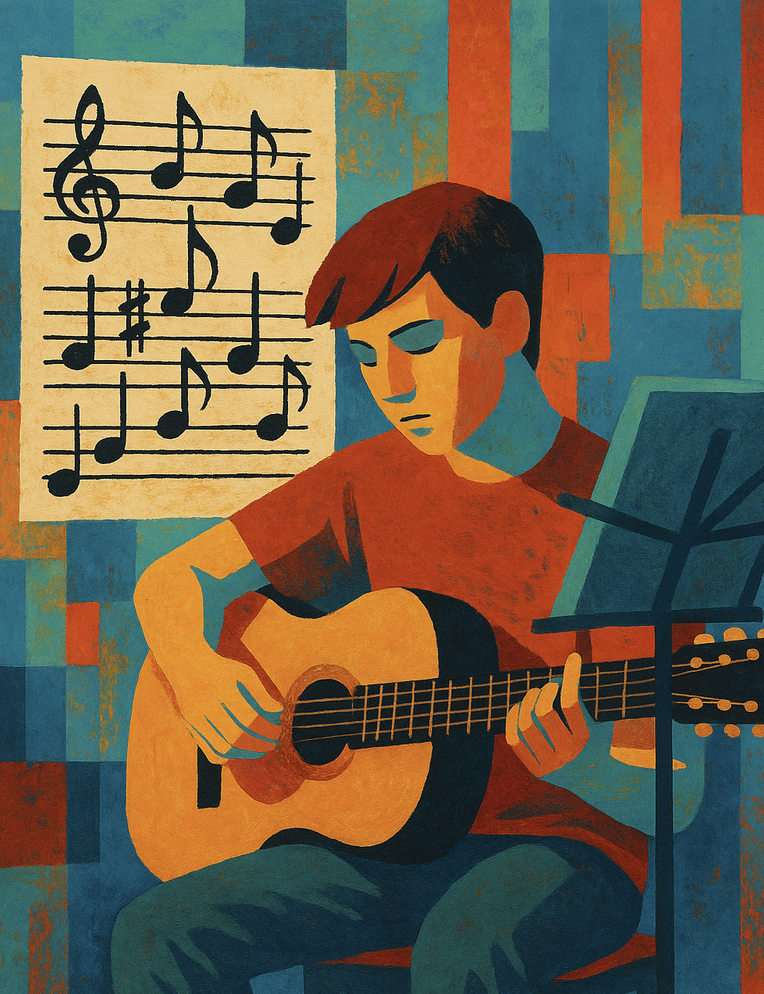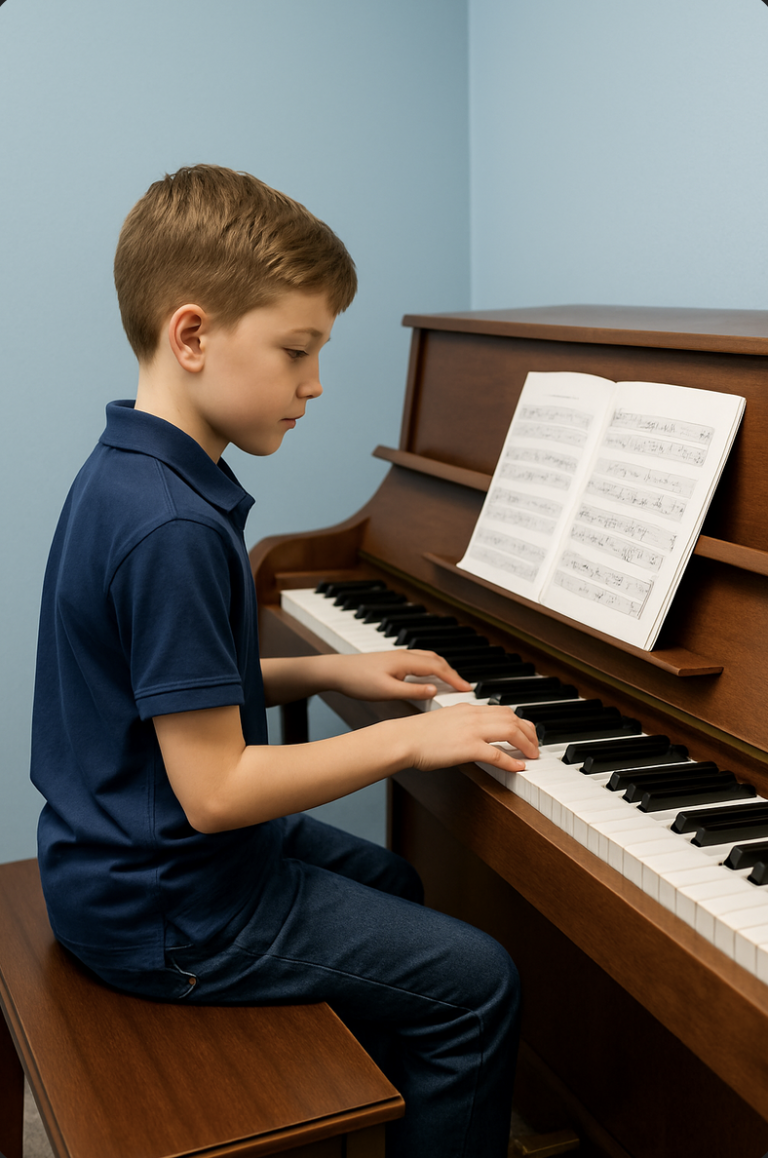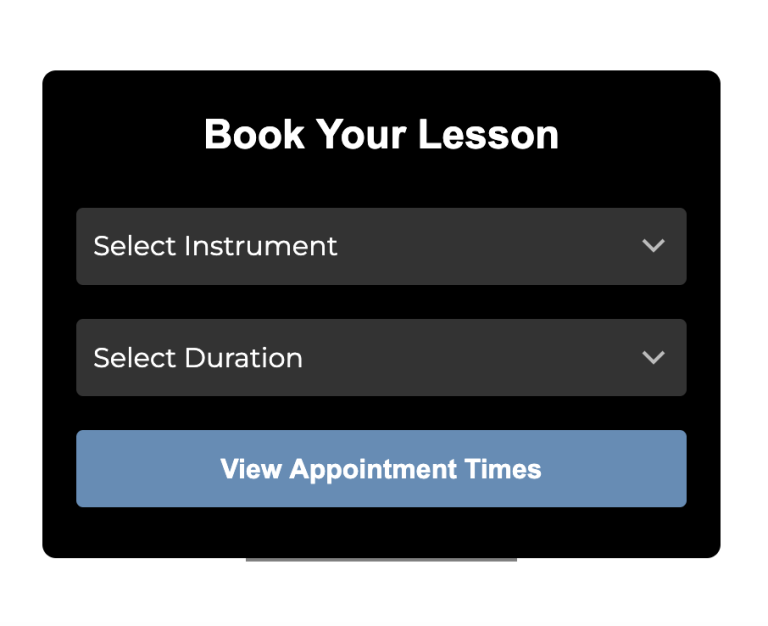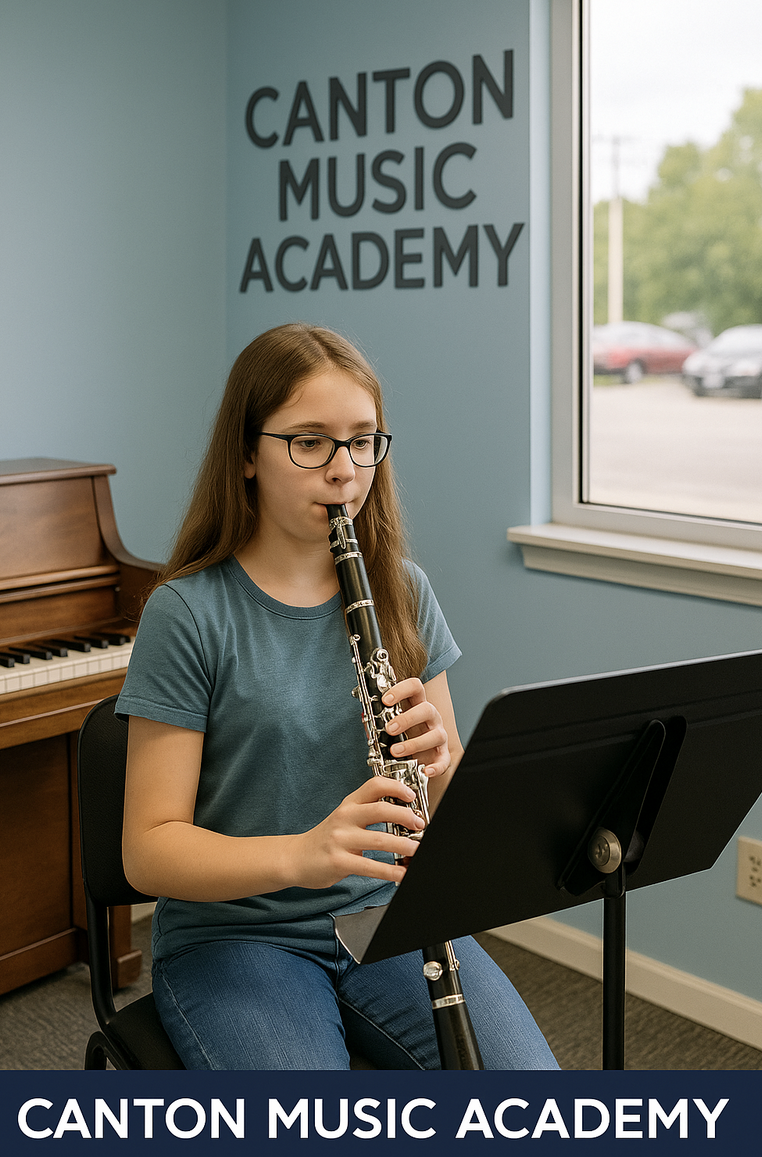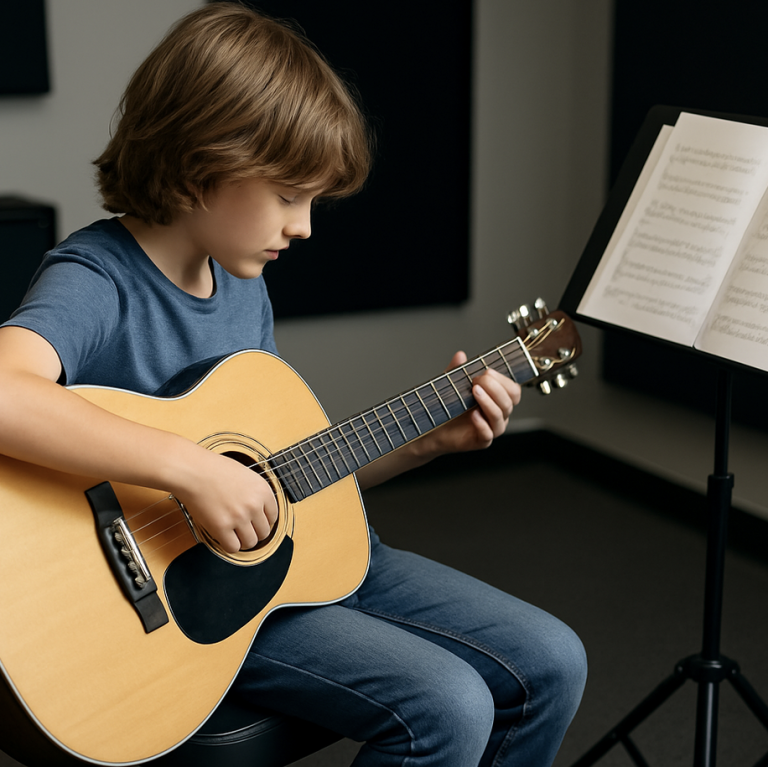Guitar Theory Lessons Canton MI: Why Knowing More Isn’t a Crime
By Henry Bahrou
Guitarist, Music Theorist, Music Academy Director – Canton Music Academy
I didn’t learn music the “right” way. I learned guitar mostly on the streets—listening, jamming, watching, and figuring things out by ear. I was stubborn, often dismissive of advice, and skeptical of anything that smelled academic. That’s not a complaint; it’s just the path I took.
But eventually, I came around. I remembered that somewhere back in elementary school, I had teachers who made a point to introduce us to the treble clef and basic note reading. That little foundation stuck with me—and made the formal study of music, when I was finally ready for it, much more approachable. And honestly, that knowledge became essential.
The Guitar Community’s Love Affair with Not Knowing
Here’s the strange thing I’ve noticed over the years, especially in the world of guitar: there’s almost a strange pride in not knowing. A badge of honor in being “out of the loop” when it comes to reading music or understanding basic theory.
And it’s not just casual. I’ve met plenty of players—some very skilled—who can name every guitar brand and model variation from the last 40 years, identify amp circuits and cab wood, and explain every boutique pedalboard layout imaginable. But bring up something like the Lydian mode, and suddenly it’s like you’ve committed a social crime. “Oh, you’re one of those guys,” they say.
To be clear: I’m not knocking being hands-on or gear-savvy. That’s a valid, even essential part of guitar culture. But let’s be honest with ourselves—being cool doesn’t mean being clueless. And brushing off theory or reading as nerdy or unnecessary isn’t a stance of confidence. It’s often a cover for fear or avoidance.
Theory Isn’t the Enemy
This mindset doesn’t really show up in the piano world. Pianists often seem proud to share what they’ve learned—from scales to inversions to complex harmonic concepts. Their swagger comes from understanding and fluency, not mystery.
So why not on guitar? Maybe it’s the culture. Maybe it’s how the instrument is taught. But I’ve always believed that musicians—especially guitarists—could benefit from embracing more musical literacy without feeling like it compromises their identity.
Yes, it’s possible to overdo it. Music theory is a tool, not a prison. Memorizing every scale pattern on paper won’t help you if you’re frozen on stage. But the opposite—refusing to learn the notes on the fretboard, the basic building blocks of scales, or the structure of a key—is just as limiting.
When the “Cool” Wears Off
Here’s something I’ve seen time and time again: years after rolling their eyes at a lesson on the Mixolydian mode or tuning out during a discussion of harmonic minor, former students call me. They’re playing in a band now. Writing songs. Recording. And they say it: “I should have paid attention to that stuff you talked about.”
It’s fine when it’s kids. They’re learning. But adults? It’s time to grow up.
If you’re serious about improving as a musician—whether you’re a weekend player or a songwriter—stop pretending it’s cool not to know. No one’s asking you to recite textbooks. But learning the notes in a major scale or understanding what makes a chord function won’t kill your creativity. In fact, it’ll give it more direction.
Final Thoughts: Learn Both Ways
I still love the street-learned style of playing. I admire instinct. But I also advocate for bridging the gap between instinct and insight. You can feel music and understand it. You can jam from the soul and explain what you’re doing.
At Canton Music Academy, we teach both. We’ll work with your playing style and help you build on your instincts while strengthening your foundation. Reading music, understanding theory, knowing your fretboard—it’s not about being a nerd. It’s about being a more complete musician.
You don’t have to lose your edge to get smart.
Interested in building your musical fluency? Learn more about Guitar Lessons in Canton MI
Or call/text us at 734-667-4983 to get started. – Book Online
